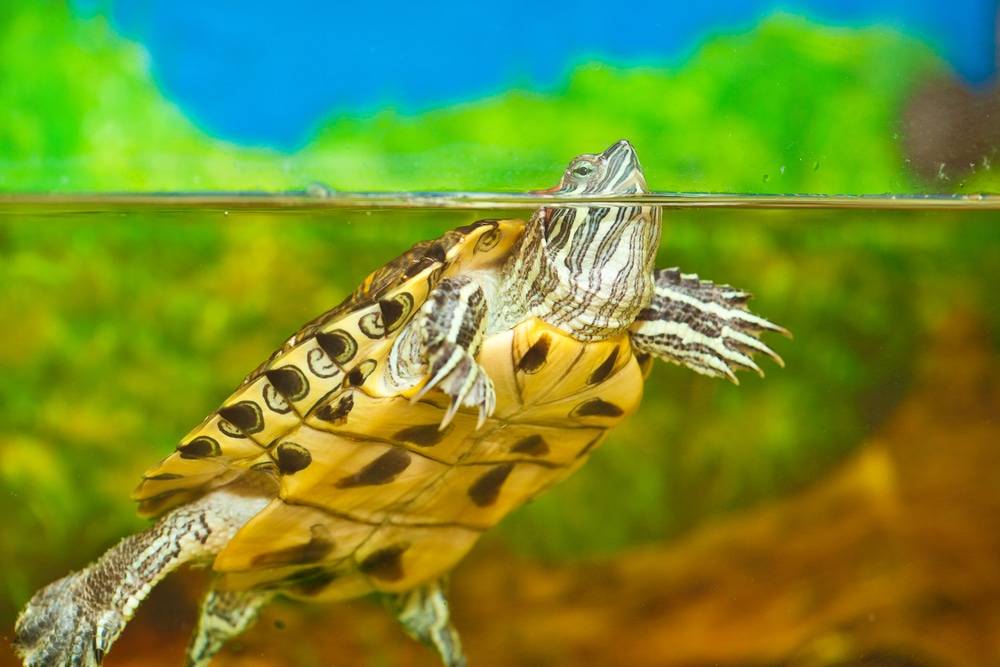
This article delves into the intersection of turtle-keeping and Islamic values. It explores how Islamic teachings emphasize the ethical treatment of animals and our responsibilities as caretakers of the Earth.

Can We Keep a Turtle as a Pet in Islam?
Islam is a religion that encourages kindness, compassion, and responsible stewardship of the Earth and its creatures. While there is no direct prohibition against keeping turtles as pets in Islam, it’s essential to understand the principles of animal welfare and Islamic teachings regarding our treatment of animals.
Islamic teachings emphasize the ethical treatment of animals, considering them as part of God’s creation and deserving of respect and care. The Quran and Hadiths highlight the Prophet Muhammad’s compassion for animals and his teachings on their proper treatment. As such, if one decides to keep a turtle as a pet, it’s crucial to ensure their well-being is a top priority.
When considering keeping a turtle as a pet, there are several factors to take into account. Firstly, the living conditions must be suitable for the turtle’s natural habitat and needs. Adequate space, temperature, and proper lighting are essential for the turtle’s health. Secondly, providing appropriate nutrition and clean water is crucial. Turtles have specific dietary requirements that need to be met to maintain their health.
Moreover, regular veterinary care is necessary to address any health concerns and ensure the pet’s overall well-being. Neglecting a pet’s health would go against the teachings of Islam, which promote responsible stewardship of all living creatures.
Islam does not explicitly list which animals can be kept as pets and which cannot. However, one should exercise common sense and avoid keeping animals that might cause harm or discomfort. It is essential to avoid wild-caught animals, as capturing animals from their natural habitats can disrupt ecosystems and endanger species.
In conclusion, keeping turtles as pets in Islam is not forbidden, provided that their care aligns with the principles of compassion and ethical treatment of animals. Islamic teachings encourage responsible stewardship of the Earth and its inhabitants, and this extends to the care we provide for pets. When considering keeping a turtle or any other animal as a pet, one should prioritize the animal’s welfare, ensure appropriate living conditions, nutrition, and medical care, and treat the pet with the kindness and respect it deserves. If seeking guidance, consulting knowledgeable Islamic scholars or religious authorities can provide clarity based on Islamic teachings and individual circumstances.
Guidance Pertaining to Turtle Ownership in Islam
Islamic teachings do not offer specific directives concerning the ownership of turtles. Nevertheless, it remains paramount to prioritize their well-being and prevent any harm. Below are recommendations for harmonizing turtle ownership with Islamic values:
- Establish a hygienic and spacious habitat that caters to the turtle’s needs.
- Ensure that the sustenance provided aligns with halal standards and promotes their health.
- Approach the turtle with tenderness and caution, minimizing stress or discomfort during interactions.
- Refrain from confining turtles in conditions that contradict Islamic principles, such as cramped spaces or alongside potentially harmful cohabitants.
Types of Turtles you can have as a pet
There are several types of turtles that can be kept as pets, each with its own characteristics and care requirements. Here are a few common types of pet turtles:
- Red-Eared Slider (Trachemys scripta elegans): Red-eared sliders are one of the most popular pet turtle species. They have distinct red markings on the sides of their heads. These turtles are semi-aquatic and need both water and a dry basking area. They require a tank with UVB lighting, proper filtration, and a varied diet of aquatic plants and protein.
- Eastern Box Turtle (Terrapene carolina carolina): Eastern box turtles are terrestrial turtles with a distinctive domed shell. They are native to North America and are well-suited to outdoor enclosures in moderate climates. They eat a mixture of insects, vegetables, and fruits.
- Russian Tortoise (Agrionemys horsfieldii): Russian tortoises are popular among tortoise enthusiasts. They are small, herbivorous, and thrive in arid environments. A proper enclosure with a substrate for burrowing, a basking area, and a diet rich in leafy greens is essential for their well-being.
- Painted Turtle (Chrysemys picta): Painted turtles are colorful and can be found in North America. They are aquatic turtles that require both water and land areas in their enclosure. Their diet consists of aquatic plants, insects, and protein-rich foods.
- Musk Turtle (Sternotherus spp.): Musk turtles, also known as stinkpot turtles, are known for their musky odor they emit when threatened. They are small aquatic turtles that need a combination of water and land areas in their habitat. Their diet includes both animal and plant matter.
- Hermann’s Tortoise (Testudo hermanni): Hermann’s tortoises are small to medium-sized tortoises native to parts of Europe. They are herbivores and need a habitat that provides both shelter and basking areas. Their diet primarily consists of a variety of vegetables and leafy greens.
- Map Turtle (Graptemys spp.): Map turtles are aquatic turtles named for the intricate map-like patterns on their shells. They require a well-maintained aquatic environment with a basking area. Their diet includes aquatic plants and protein sources.
Before choosing a turtle as a pet, it’s crucial to research the specific care requirements of the species you’re interested in. Each type of turtle has its own habitat needs, dietary preferences, and temperature requirements. Proper research and preparation are key to providing a suitable and thriving environment for your pet turtle.
What happened to Dale Robertson’s horse Jubilee?
What does it mean when a lizard poops on you?
What is the meaning of 18 bills in a debut?
What is the most expensive item on TF2?
Are lubber grasshoppers poisonous to dogs?
Do Turtles Have Periods?
